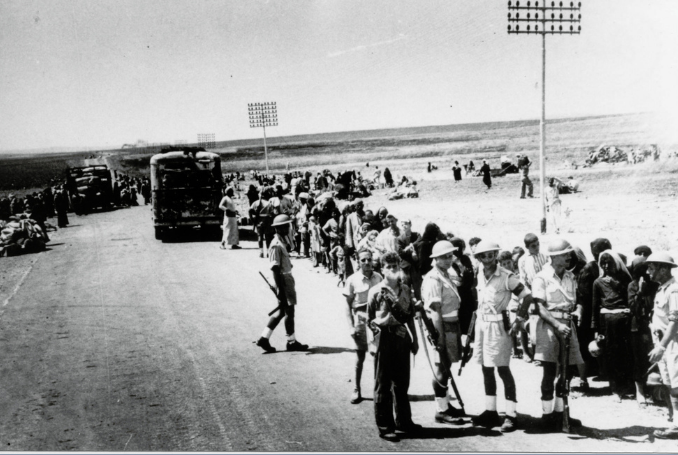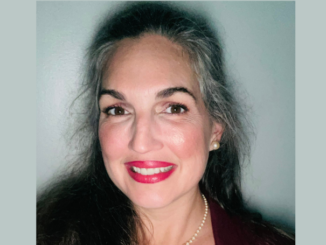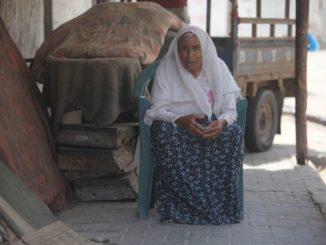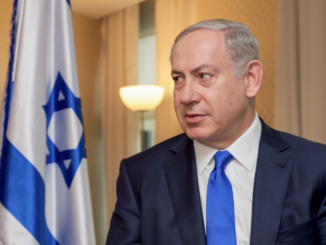
By Benay Blend
“Israelis celebrate their Independence Day,” Dareen Tatour explains, “but it comes with celebrating the suffering of our ancestors, the displacement of our people and the memory of massacres perpetrated against us over the years.”
A poet who was repeatedly detained in Israel for her words, Tatour now lives in Sweden where she is the recipient of an ICORN residency as well as the Norwegian Writers’ Union Freedom of Expression award for “break[ing] the silence on the conditions of Palestinians.” She uses her literary work to encourage Palestinian women to speak up against all forms of abuse and human rights violations.
In 2019, while still living within the Zionist state, Tatour declared that she could hear the sirens mark the beginning of Israel Independence Day, a holiday commemorated by the occupiers while the occupied are still “deeply rooted in [their] homeland.” For her, the day marks the initiation of ethnic cleansing, the destruction of Palestinian villages, and the formation of a Palestinian refugee population that continues growing to this day.
During a 1994 interview with Barbara Miner of Rethinking Schools magazine, the late historian Howard Zinn pondered the following question, so pertinent to the Nakba/Independence Day contradiction: How do you “foster a sense of justice and avoid the trap of relativity that, ‘Well, some people say this, some people say that?’”
On relativity, Zinn concluded that people are often unwilling to support a “moral issue” because “well, there’s this side and there’s that side.” In that case, he counters that quite often sides both sides do not carry the same moral weight, so if there is to be a better world, then it’s necessary to always “take a stand.”
Zinn’s philosophy applies to all situations in which there is an occupier and an occupied, an enslaved and an enslaver. After Israel’s last genocidal onslaught on Gaza in May 2021, Haidar Eid explained that some “liberals” issued the usual public statements, blaming equally the colonizer and the colonized, but concluding that “Palestinians must stop launching rockets from Gaza.”
In The Ethnic Cleansing of Palestine (2006), Ilan Pappe replaces the standard “paradigm of war” with that of “ethnic cleansing” (p. xvi) in order to clarify why there is only one narrative of the Palestinian past. He explains that this is not only the requisite scholarly approach, but it represents a “moral decision” (p. xviii), a step that is necessary before there can be reconciliation and peace.
Nevertheless, Eid notes, commentators more often than not fail to recognize the Palestinians’ “sumud,” in other words, their resilience to what he calls a “Western-backed settler colonialist and apartheid project which the Palestinian people are resisting.”
On July 5, 1852, Frederick Douglass addressed the citizens of Rochester, New York, on a related question: “What, to the Slave, is the Fourth of July?” Douglass used this occasion not to celebrate the country’s independence, but to remind his audience of the continuing enslavement of his people.
“Your high independence,” he charged, “only reveals the immeasurable distance between us. The blessings in which you, this day, rejoice, are not enjoyed in common.” While his audience might “rejoice,” Douglass concludes he “must mourn,” because he does not share in the liberty that was being celebrated that day.
It’s been over a century since Africans in this country freed themselves from slavery, but Douglass’ sentiment lives on wherever colonization still exists. For example, on January 26 each year Australians commemorate the day Sir Arthur Phillip raised the British flag at Warrane (Sydney Cove) to declare the land a British Colony. As Rona Glynn McDonald admits, however, Australia Day is not celebrated by Aboriginal and Torres Strait Islander people. Instead, they call it Invasion Day, because for them it marks the beginning of a “long and brutal colonization of people and land.”
In Canada, last year’s founders’ day celebration came shortly after hundreds of Indigenous children’s remains were discovered in residential schools’ unmarked graves, “forced-assimilation institutions” in which First Nations children were subjected to physical and sexual violence, psychological trauma, starvation, and other forms of abuse, very much the way Palestinian minors are treated in Israeli detention centers today. In response, many people asked for the cancellation of Canada Day, replacing it instead with Indigenous Peoples’ Day.
“As a nation of Indigenous Peoples, we must stand strong and shout this out to the rest of Canada. This country’s true history is finally being revealed, and it’s time to stand together and demand justice and accountability,” Oshkaatisak Council member Mallory Solomon, of Constance Lake First Nation, said in a statement related to the proposed event.
In the United States, Indigenous Peoples’ Day has replaced Columbus Day in some areas of the country. Last year on October 11, 2021, Jennifer Marley (San Ildefonso), an organizer for The Red Nation and Ph.D. student at the University of New Mexico, joined Amy Goodman’s Democracy Now to explain how resource extraction continues to this day disproportionately on Native land.
In the Red Deal, Marley continued, there is a reference to ending the occupation of all Indigenous land in the Global South, including Palestine. Here she is describing the struggle as international in scope, “call[ing]”, she concludes, “for an end to imperialism, an end to capitalism, an end to genocidal violence, and focuses on caretaking our Earth, caretaking each other and caretaking ourselves, ultimately.”
What about the colonizers? Where do they fit into this picture? In his recent blog “The Importance of Being Flippant,” Steven Salaita claims that question itself “transforms discussion of Palestine into a referendum on Israel’s primacy, which again puts the Palestinian in a subordinate position. It informs the audience that Zionism must be affirmed before the Palestinians can speak of liberation.”
“The settler’s insecurity,” concludes Salaita, “is not equivalent to the native’s liberation,” thereby affirming the importance of centering the colonized in any discussion of deliverance. It affirms why the annual Combatants for Peace Joint Memorial, a commemoration that brings together Israeli and Palestinian families to mourn their dead, glosses over the past in order to create the semblance of two equal parties, two sets of equal pain, when in fact the two parties share no equality at all.
While the Holocaust might play a central role in Jewish history, it is not an ongoing event, as Nur Masalha claims is the case for the Nakba and the ethnic cleansing of Palestine (The Palestine Nakba: Decolonising History, Narrating the Subaltern, Reclaiming Memory, (2012, p. 14).
Referring to generational trauma in Australia, Paul Gorrie, a Gunai/Kurnai, Gunditjmara, Wiradjuri and Yorta Gondomar man, writes that
“all over the world, when communities have traumatic experiences, there are long term consequences. Their children and grandchildren are affected, and depending on whether and how wrongdoings are acknowledged and continuing problems are addressed, the trauma tracks down the generations… Australians of today are not directly responsible for what happened in the past. But it is part of our shared history as Indigenous and non-Indigenous Australians and, together, we are responsible for what happens in the future.”
For Palestinians, there is also ongoing trauma. To them, Israeli Independence Day means celebrating the number of Palestinians who have been imprisoned; the number of trees that have been cut down; and finally, the homes that have been destroyed; and, finally, the refugees that have been displaced who are waiting to return.
In the end though, concludes Tatour:
“We renew their loyalty and visit their destroyed villages. We wander on the soil of our towns and sit on the remaining stones of the rubble of houses that once stood there. We suffer in silence and pride and remain, despite freedom being only a dream.”
If “Zionism was (and remains) not just about the colonization of Palestinian land, but also about colonizing minds—Jewish, Arab, European, American” (Masalha, p. 5), then it stands to reason that decolonization is a larger project than reclaiming land. Writing more honestly about the Nakba, Masalha claims, is not just an exercise in historiography; it is also “a moral imperative of acknowledgement and liberation” (p. 18). It is the “only way forward,” Pappe agrees, “if we want to create a better future for us all” (p. xvii).

– Benay Blend earned her doctorate in American Studies from the University of New Mexico. Her scholarly works include Douglas Vakoch and Sam Mickey, Eds. (2017), “’Neither Homeland Nor Exile are Words’: ‘Situated Knowledge’ in the Works of Palestinian and Native American Writers”. She contributed this article to The Palestine Chronicle.







